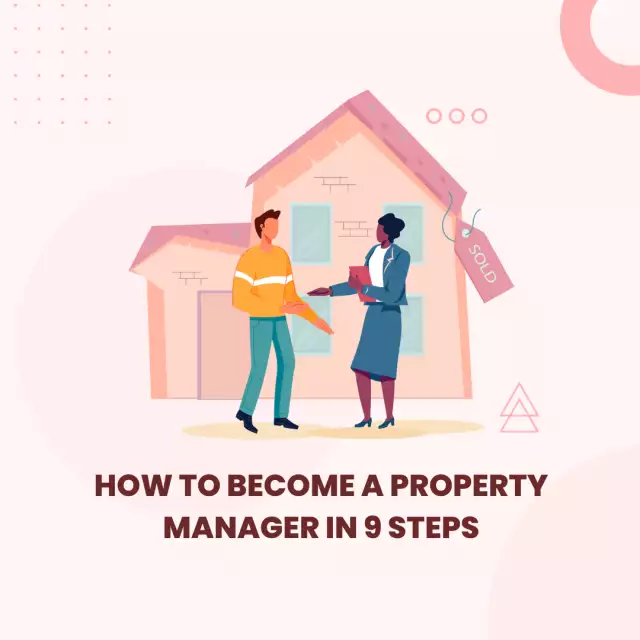How to Become a Property Manager in 9 Steps
Becoming a property managercan be an exciting and fulfilling career path. It requires a unique set of skills, including organization, communication, and problem-solving abilities. However, getting started in this field can be challenging without knowing the proper steps to take. In this article, we'll outline a comprehensive guide on how to become a property manager in nine steps.
Understand the Role of a Property Manager
Before pursuing a career in property management, it's essential to understand what the job entails. A property manager oversees the daily operations of real estateproperties. They're responsible for maintaining the property, screening and selecting tenants, and ensuring that the property complies with local and federal regulations.
Obtain a High School Diploma or Equivalent
To become a property manager, the first step is to obtain a high school diploma or equivalent. This is a minimum requirement for most property management positions. If you're still in high school, consider taking courses in business, finance, and real estate to prepare yourself for a career in property management.
Get a Bachelor's Degree (Optional)
While not always necessary, having a bachelor's degree can be an advantage when applying for property management positions. Relevant degree programs include business administration, finance, real estate, or a related field. A bachelor's degree can help you stand out from other applicants and provide you with the knowledge and skills necessary to succeed in this field.
Gain Experience in Real Estate
To become a property manager, you'll need to gain experience in the real estate industry. This can be done through internships, entry-level positions, or even volunteering. Look for opportunities to work with real estate agents, property management companies, or landlords to gain experience in property management.
Obtain a Property Management License
In some states, property managers are required to have a license to operate legally. Requirements for obtaining a property management license vary by state, but they typically involve passing an exam and meeting specific education and experience requirements.
Develop Your Skills
To become a successful property manager, you'll need to develop specific skills, including organization, communication, and problem-solving abilities. Look for opportunities to develop these skills through courses, workshops, or mentorship programs.
Build Your Network
Networking is critical in the real estate industry, and property management is no exception. Attend industry events, join professional organizations, and connect with other property managers to build your network. A robust network can provide you with job opportunities, referrals, and support throughout your career.
Apply for Property Management Jobs
Once you've gained the necessary education, experience, and skills, it's time to start applying for property management positions. Look for job openings with property management companies, real estate firms, or property owners. Be prepared to provide a resume, cover letter, and any necessary licenses or certifications.
Continue Your Education and Professional Development
To stay competitive in the property management industry, it's essential to continue your education and professional development. Attend industry conferences, take courses, and seek out mentorship opportunities to continue to grow your skills and knowledge.
FAQs
What are the typical responsibilities of a property manager?
A property manager is responsible for overseeing the daily operations of real estate properties. This includes screening and selecting tenants, maintaining the property, handling rent and financial matters, and ensuring that the property complies with local and federal regulations.
Do I need a degree to become a property manager?
While a degree is not always necessary, having a bachelor's degree in a relevant field, such as business administration, finance, or real estate, can be an advantage when applying for property management positions.
How do I obtain a property management license?
Requirements for obtaining a property management license vary by state, but they typically involve passing an exam and meeting specific education and experience requirements.
What skills are essential for a property manager?
Essential skills for a property manager include organization, communication, problem-solving, financial management, and customer service.
What kind of experience do I need to become a property manager?
To become a property manager, you'll need to gain experience in the real estate industry. This can be done through internships, entry-level positions, or even volunteering.
What are the job prospects for property managers?
Job prospects for property managers are good, with the Bureau of Labor Statistics projecting an 8% growth rate for property, real estate, and community association managers between 2019 and 2029.
How much can I expect to earn as a property manager?
The salary for property managers varies depending on factors such as location, level of experience, and the size and type of properties managed. According to Salary.com, the median annual salary for property managers in the United States is $80,087 as of April 2023.
In conclusion, becoming a property manager requires dedication, education, and experience. By following these nine steps, you can position yourself for a successful career in property management. Remember to be patient, persistent, and always be willing to learn and grow.




